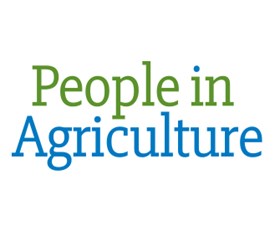Early stage Ag start-ups need Investment
31/5/2017
The Agricultural Start-up sector has no shortage of willing investors, just a shortage of investment friendly opportunities, according to Sam Trethewey the General Manager of SproutX and Agri Innovation manager at Findex.
The Agricultural Startup sector has no shortage of willing investors, just a shortage of investment friendly opportunities, according to Sam Trethewey the General Manager of SproutX and Agri Innovation manager at Findex.
What it urgently needs is "deal flow" and capacity.
“Everyone points to capital. They will tell you there is not enough capital in the sector. You commonly hear across Australian agriculture that ‘we need more money’. But there are billions of dollars trying to get into Australian agriculture and billions of dollars trying to get into ag tech." he said at the 400M AgTech Investment Conference in Toowoomba, Qld, last week.
When it comes to attracting and securing investment for agricultural innovations, Australia lagged well behind other developed nations, Mr Trethewey said. One of the reasons that investment is holding back is that farmers are using taxation accounting to minimise their profits.
“Who wants to invest in a business that doesn’t make profit?” he said.
“I daresay that we are one of the worst commercialised developed nations in the world. We rank 33 out of 33 in the OECD for commercialisation, yet we rank number 11 in the world for spend on R&D,’ he said.
“Roughly $1.4 billion a year in ag goes into R&D. Wouldn’t it be lovely if we could have a $1 return on that investment, but we are just not seeing it."
“I point the finger at the CSIRO and our universities that are not incentivised by rural commercialisation. We are not commercialising our technology.”
Mr Trethewey said when it came to per capita investment in venture capital, Australia hardly rated.
“In 2015, there were $68 per person that went into early-stage ag tech venture capital, which is generally pre-revenue, in Israel. It was $7/person in the US, but you have 330 million people so that is about $2.2 billion. Canada $5/person, UK $1.90/person,” he said.
“Australia doesn’t even get a blip on the map. $4.5 million in 2015 (spread) over deals of $23 million. So, not enough activity. It is not all the capital’s fault, we have a lack of ‘deal flow’.”
“There is no-one in Australia who is investing in high risk, early stage businesses. A lot of Australian venture capitalists will come in when you are at Series A (the first round of financing once seed capital has been provided), but you need capital up front to build your business until you start picking up revenue,” he said.
“This is why there is a lack of ag tech innovation in Australia or early stage start-ups.
“I have a list of investors who will come along and invest in your business when you have revenue. But when you don’t have revenue there is a massive drought.”
Mr Trethewey said the solution was to build capability and knowledge among start-ups in Australia.
“The reason we need to build knowledge and capability is that the value proposition that an Aussie ag tech start-up presents to the global venture capital market doesn’t even come close to the value proposition that a start-up from Israel or Silicon Valley presents to that same venture capitalist,” he said.
“That is because they understand what a pitch is, what they need to get across and the time they need to get it across in. They understand all the things an investor is looking for in a scalable investment opportunity.”





